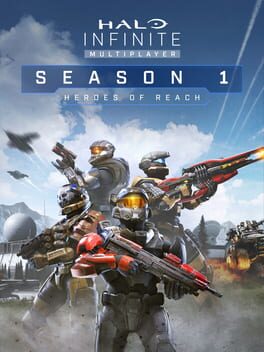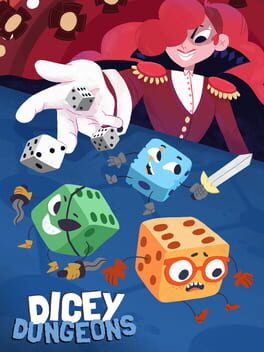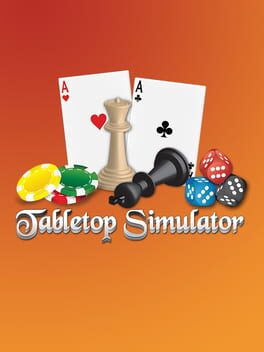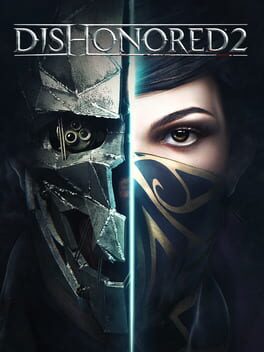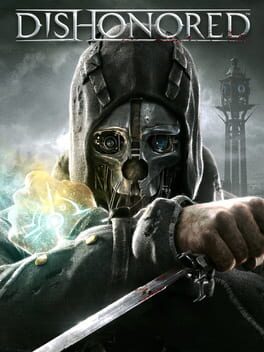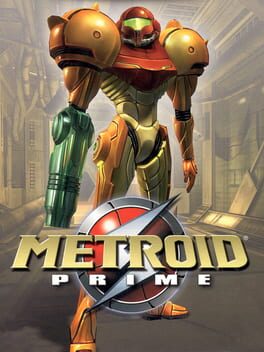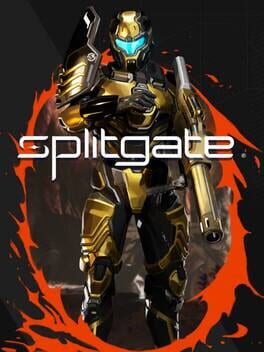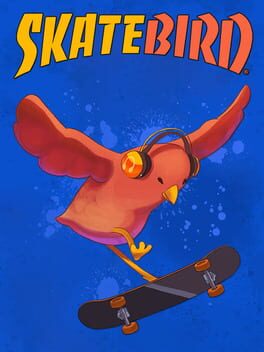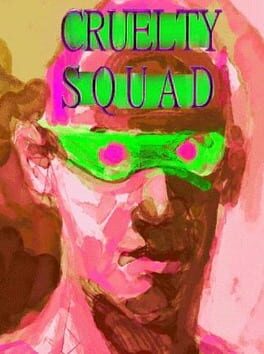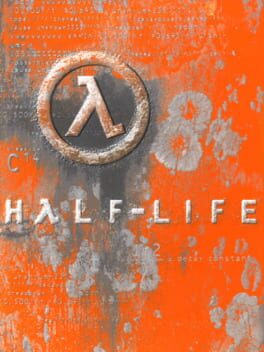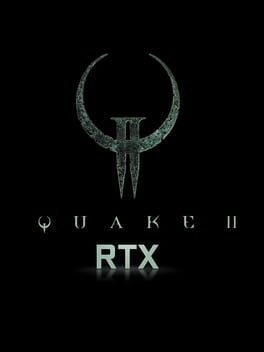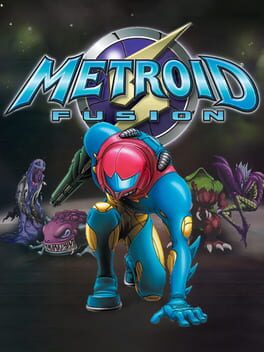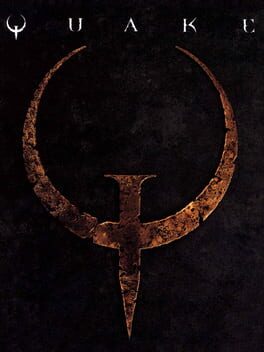HaroKid
"Not at Launch" is this game's mantra, and it's a real shame. The base game is entirely solid, and most of the issues surrounding Infinite's F2P multiplayer - Egregious MTX that are more "Macro" than "Micro" in pricing, weird weapon nerfs from the pre-release flights, and needlessly restrictive armor customization really leave an ugly mark on an otherwise excellent package. Once again a barebones MP launch after Halo 5's non-existent suite of game modes and community features even after a 1-Year delay is... Baffling.
Coming off of the promising sounding promo materials regarding monetization and customization as well, the trend continues - If a 343i Halo game sounds too good to be true, then it probably is.
Coming off of the promising sounding promo materials regarding monetization and customization as well, the trend continues - If a 343i Halo game sounds too good to be true, then it probably is.
2019
2021
2015
2021
2016
2012
2002
2019
Splitgate undoubtedly wears its Halo inspiration on its sleeve, and the emphasis on its Portal mechanics are just subtle enough to combine into something very clever and satisfying, in spite of the eSports-vomit aesthetic.
Splitgate's modes are almost verbatim the same as Halo's suite, and its best maps are all remixes of famous Halo maps like Midship and Sanctuary. Shooting is crunchy and responsive, if not super in-depth.
A good time for anyone craving a gamepad optimized Arena shooter, though the experience varies wildly based on the quality of whichever map you happen to be playing on.
Splitgate's modes are almost verbatim the same as Halo's suite, and its best maps are all remixes of famous Halo maps like Midship and Sanctuary. Shooting is crunchy and responsive, if not super in-depth.
A good time for anyone craving a gamepad optimized Arena shooter, though the experience varies wildly based on the quality of whichever map you happen to be playing on.
2021
2021
1998
A trailblazer in the cinematic, story-driven style of FPS, Half-Life accomplished a lot of new things in a compelling wrapper, but perhaps at the cost of having just-barely-serviceable gameplay.
Half-Life is maybe a sort of platformer, but without the physics and controls in place to make half of the precision jumping reasonable.
Half-Life is maybe of tactical shooter, but with an array of tools that can feel useless against highly bullet-spongey enemies.
Half-Life is maybe a focused and linear cinematic rollercoaster, but with endless trial-and-error encounters and cheap shots.
Practically birthing a new trend of how FPS games were made, Half-Life occupies a strange space of being distinctly different from the likes of Quake and certainly the Doom era of games, but hasn't quite locked down the best practices for the subgenre of games it would kickstart. This is hard to fault Half-Life for, but I can't help but feel many of its shortcomings could have been avoided by trimming much of the fat.
The best of Half-Life's offerings all come with an asterisk. Enemy AI is certainly smart, but it's not very much fun to fight against. The FPS formula is mixed up to provide some variety, but many of its puzzles outstay their welcome. The game's scripted moments and queues are all fairly memorable, but often hampered by a slew of technical glitches and goofs - Worse, the effects of these moments are diminished by the need to constantly save and load when the game is eventually unfair or just breaks beyond repair.
The reputation of Xen precedes itself, and it is in fact the lowest point of Half-life - A shame for the climax of any game - But I feel all of Half-Life's worst habits and bad practices really start to manifest in irritating fashion by the second half of the Surface Tension chapter.
At it's core, Half-Life was probably the first FPS game to feel like a playable pulp action hero movie - Maybe less Total Recall power fantasy and more Die Hard vulnerable tension - And it does so with a great sense of style and atmosphere. But to say it's rough around the edges and slightly overlong is an understatement.
Half-Life is maybe a sort of platformer, but without the physics and controls in place to make half of the precision jumping reasonable.
Half-Life is maybe of tactical shooter, but with an array of tools that can feel useless against highly bullet-spongey enemies.
Half-Life is maybe a focused and linear cinematic rollercoaster, but with endless trial-and-error encounters and cheap shots.
Practically birthing a new trend of how FPS games were made, Half-Life occupies a strange space of being distinctly different from the likes of Quake and certainly the Doom era of games, but hasn't quite locked down the best practices for the subgenre of games it would kickstart. This is hard to fault Half-Life for, but I can't help but feel many of its shortcomings could have been avoided by trimming much of the fat.
The best of Half-Life's offerings all come with an asterisk. Enemy AI is certainly smart, but it's not very much fun to fight against. The FPS formula is mixed up to provide some variety, but many of its puzzles outstay their welcome. The game's scripted moments and queues are all fairly memorable, but often hampered by a slew of technical glitches and goofs - Worse, the effects of these moments are diminished by the need to constantly save and load when the game is eventually unfair or just breaks beyond repair.
The reputation of Xen precedes itself, and it is in fact the lowest point of Half-life - A shame for the climax of any game - But I feel all of Half-Life's worst habits and bad practices really start to manifest in irritating fashion by the second half of the Surface Tension chapter.
At it's core, Half-Life was probably the first FPS game to feel like a playable pulp action hero movie - Maybe less Total Recall power fantasy and more Die Hard vulnerable tension - And it does so with a great sense of style and atmosphere. But to say it's rough around the edges and slightly overlong is an understatement.
2019
As unconvinced I am of the original Quake's take on gothic lovecraft stuffs, it doesn't take a genius to see just how much less personality Quake II has in comparison.
The weapons are a tad more generic, but are mostly satisfying to use. The interactivity in each level gives off the feeling of a gimmicky tech demo, even without the RTX implementation, but in a fun way that I don't hate. Enemies are boring, both in theme and behavior, and can often feel overly spongey.
The music of Quake II isn't great, but modern releases excluding it altogether is a strict no-no.
The RTX implementation is mostly quite good, but the lack of muzzle flashes on weapons you fire yourself seems like a glaring omission that would have enhanced the overall experience and weapon feedback.
Like the original Quake, some things begin to click a bit more in multiplayer deathmatch, but an increasingly useless starting weapon and the lack of modern on-boarding features as seen in the 2021 Quake remaster keep the barrier of entry to that experience as high as it's always been.
The weapons are a tad more generic, but are mostly satisfying to use. The interactivity in each level gives off the feeling of a gimmicky tech demo, even without the RTX implementation, but in a fun way that I don't hate. Enemies are boring, both in theme and behavior, and can often feel overly spongey.
The music of Quake II isn't great, but modern releases excluding it altogether is a strict no-no.
The RTX implementation is mostly quite good, but the lack of muzzle flashes on weapons you fire yourself seems like a glaring omission that would have enhanced the overall experience and weapon feedback.
Like the original Quake, some things begin to click a bit more in multiplayer deathmatch, but an increasingly useless starting weapon and the lack of modern on-boarding features as seen in the 2021 Quake remaster keep the barrier of entry to that experience as high as it's always been.
2002
Metroid Fusion offers some gorgeous visuals and the best Samus design yet, but feels compromised in perhaps every other way.
At this point, Fusion doesn't offer too much new in the way of gameplay - A few gimmicks in the way enemies respawn, some weapon behaviors slightly changed, that kind of stuff. While there are some control adjustments that are certainly welcome, Fusion somewhat disappointingly aims to innovate in the series not through core gameplay, but by a more streamlined sense of progression, and an emphasis on in-game storytelling.
In addition to just not feeling as satisfying as the sprawling open ended-ness of Super Metroid, this approach just feels sort of half-baked, and doesn't push far enough or executes well enough on the distance it does go.
Most of the new things Fusion aims to do, Zero Mission just does better. And most of the old things it tries to do again, Super Metroid has it beat by a country mile.
At this point, Fusion doesn't offer too much new in the way of gameplay - A few gimmicks in the way enemies respawn, some weapon behaviors slightly changed, that kind of stuff. While there are some control adjustments that are certainly welcome, Fusion somewhat disappointingly aims to innovate in the series not through core gameplay, but by a more streamlined sense of progression, and an emphasis on in-game storytelling.
In addition to just not feeling as satisfying as the sprawling open ended-ness of Super Metroid, this approach just feels sort of half-baked, and doesn't push far enough or executes well enough on the distance it does go.
Most of the new things Fusion aims to do, Zero Mission just does better. And most of the old things it tries to do again, Super Metroid has it beat by a country mile.
1996
Quake is often cited as an atmospheric, break-neck speed shooter; Having not played it until now, I believe both descriptors have historically been far overstated.
The Trent Reznor score is of a high quality, but does little to keep the player engrossed in whatever strange mish-mash of an aesthetic Quake seems to be going for - Throughout the 4 supposedly distinct, yet equally brown realms, you start to crave for something more... Energetic. Not just in the music, but the enemies and weapons themselves.
The world of Quake is far more aggressively dangerous than that of Doom, and it feels as though there has been a sort of regression to more bullet sponge-type enemies, and guns that are strictly worse-feeling than their Doom counterparts. The result is something that, unexpectedly, plays more defensively and cautiously than Doom - Lowering the difficulty isn't much of a solution to this issue as it makes everything feel trivialized. There just isn't a sweet-spot for Quake's combat loop to really click.
Grindy combat, dour visuals, underwhelming sound design, and a soundtrack that loses its luster by the second episode culminate in a game that, while technically impressive, feels like a chore to play.
Map design mostly feels like an improvement over Doom, or at least, it feels a lot more streamlined - Levels do feel brief, and easy to navigate in a good way, so much so that the game hasn't bothered including an automap. This is a shame, because while most of the time you won't ever need one, the times where it would be appreciated feel so much worse without it.
While the intro level to each episode is quite enjoyable, The overall quality of Quake's level design varies greatly between each of the individual episodes - 1 Is a solid foundation that 2 immediately underwhelms. 3 is the peak of the entire game, and 4 finishes the game with a mediocre whimper.
Perhaps my understanding of what Lovecraft really is is wrong, but very little about the environments screamed Lovecraftian to me, and maybe only about half of the entire enemy roster felt appropriate. Quake had gone through a tumultuous development cycle of varying ideas, and it really shows. Each realm is a unique flavor! Except, not really. Quake is Lovecraftian Sci-Fi! With maybe some Norse mythology thrown in there? And some other things that kind of just feel like Doom.
The lack of set-piece bosses after the first episode is a sore disappointment, an issue further exacerbated when the game's final moments return with another eldritch big bad in the most anticlimactic way.
Even with all my many gripes with Quake's singleplayer, it's still a mostly enjoyable shooter. While it doesn't control slow by any means, and yes, there certainly is a sort of atmosphere to the game, I think Quake's reputation has set me up for some major disappointment. What has been touted as a fast, aggressive, moody shooter, in reality has manifested itself as a grindy, defensive, and bland one.
Thankfully, the 2021 remaster does support a slew of multiplayer options, where I feel the game more accurately lines up with everything I had heard about it before, and then some. Quake's multiplayer really is breakneck speed. It would be completely overwhelming almost to new players had they not included the fairly competent bot implementation in local multi-player. So, kudos to the developers involved for that.
I find myself not being able to articulate all my thoughts on Quake in a very interesting or engaging way, and I think that reflects how Quake made me feel in general.
The Trent Reznor score is of a high quality, but does little to keep the player engrossed in whatever strange mish-mash of an aesthetic Quake seems to be going for - Throughout the 4 supposedly distinct, yet equally brown realms, you start to crave for something more... Energetic. Not just in the music, but the enemies and weapons themselves.
The world of Quake is far more aggressively dangerous than that of Doom, and it feels as though there has been a sort of regression to more bullet sponge-type enemies, and guns that are strictly worse-feeling than their Doom counterparts. The result is something that, unexpectedly, plays more defensively and cautiously than Doom - Lowering the difficulty isn't much of a solution to this issue as it makes everything feel trivialized. There just isn't a sweet-spot for Quake's combat loop to really click.
Grindy combat, dour visuals, underwhelming sound design, and a soundtrack that loses its luster by the second episode culminate in a game that, while technically impressive, feels like a chore to play.
Map design mostly feels like an improvement over Doom, or at least, it feels a lot more streamlined - Levels do feel brief, and easy to navigate in a good way, so much so that the game hasn't bothered including an automap. This is a shame, because while most of the time you won't ever need one, the times where it would be appreciated feel so much worse without it.
While the intro level to each episode is quite enjoyable, The overall quality of Quake's level design varies greatly between each of the individual episodes - 1 Is a solid foundation that 2 immediately underwhelms. 3 is the peak of the entire game, and 4 finishes the game with a mediocre whimper.
Perhaps my understanding of what Lovecraft really is is wrong, but very little about the environments screamed Lovecraftian to me, and maybe only about half of the entire enemy roster felt appropriate. Quake had gone through a tumultuous development cycle of varying ideas, and it really shows. Each realm is a unique flavor! Except, not really. Quake is Lovecraftian Sci-Fi! With maybe some Norse mythology thrown in there? And some other things that kind of just feel like Doom.
The lack of set-piece bosses after the first episode is a sore disappointment, an issue further exacerbated when the game's final moments return with another eldritch big bad in the most anticlimactic way.
Even with all my many gripes with Quake's singleplayer, it's still a mostly enjoyable shooter. While it doesn't control slow by any means, and yes, there certainly is a sort of atmosphere to the game, I think Quake's reputation has set me up for some major disappointment. What has been touted as a fast, aggressive, moody shooter, in reality has manifested itself as a grindy, defensive, and bland one.
Thankfully, the 2021 remaster does support a slew of multiplayer options, where I feel the game more accurately lines up with everything I had heard about it before, and then some. Quake's multiplayer really is breakneck speed. It would be completely overwhelming almost to new players had they not included the fairly competent bot implementation in local multi-player. So, kudos to the developers involved for that.
I find myself not being able to articulate all my thoughts on Quake in a very interesting or engaging way, and I think that reflects how Quake made me feel in general.
